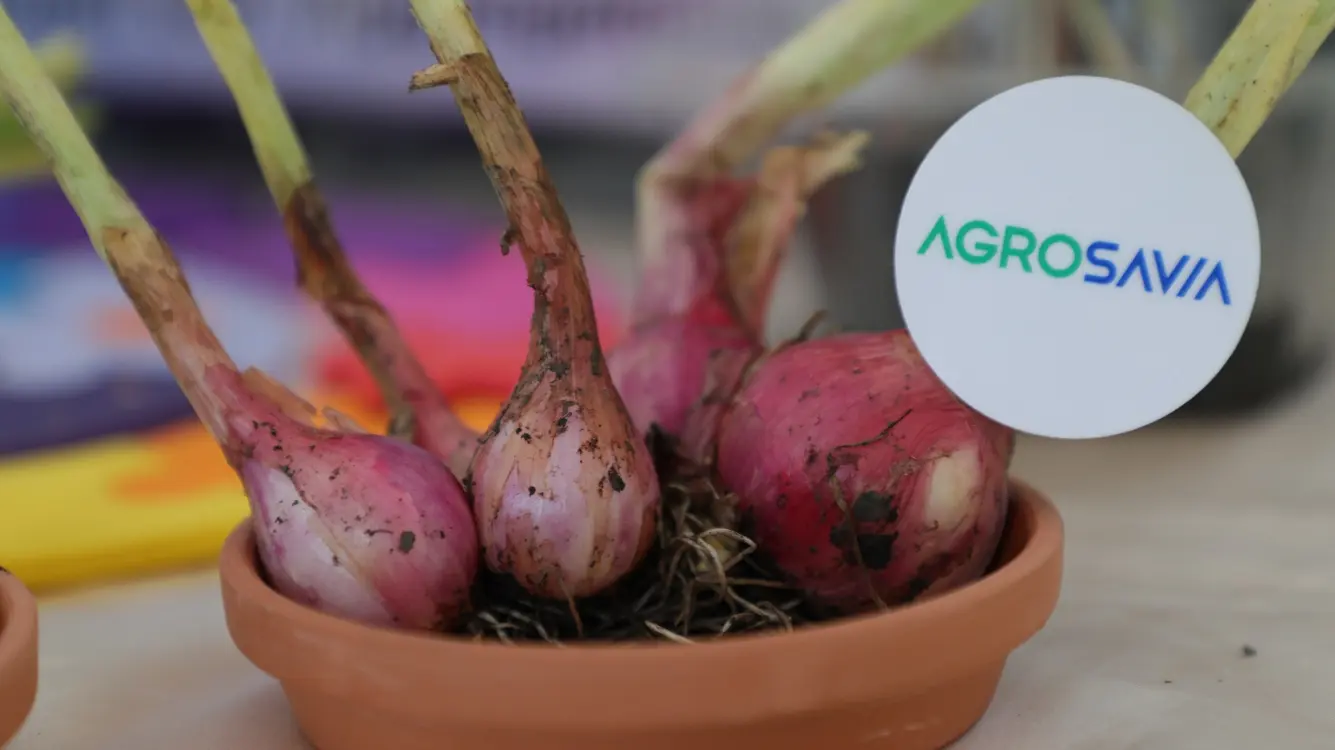- The model will directly benefit 540 producers in eight municipalities in the department of Norte de Santander: El Carmen, Ocaña, San Calixto, Hacarí, La Playa, Ábrego, Villa Caro, and Bucarasica, with an indirect impact on 1,769 people.
Ocaña, Norte de Santander. April 28, 2025. On Friday, April 25, Corporación colombiana de investigación agropecuaria presented the project's results to develop a sustainable bulb onion production model in the Province of Ocaña, Norte de Santander. This effort, which the General Royalties System funded through the Science, Technology, and Innovation Fund, was made possible thanks to the inter-institutional collaboration between partner entities such as Universidad Francisco de Paula Santander - Ocaña Headquarters, Asomunicipios, ICA and the Government of Norte de Santander through the Ministry of Agriculture. Since 2022, the project has been developing through various research, training, implementation, and evaluation stages to consolidate a sustainable and replicable model in the region.
The model includes characterization and evaluation, where biophysical, technical, and socioeconomic analyses of bulb onion production systems were performed, including assessing biotic and abiotic stress factors and implementing early climate warning systems. Likewise, different onion genotypes that respond efficiently to stress were identified and evaluated through field collection, where they were genetically and morpho-agronomically characterized in collaboration with producers, benefiting 540 families in the municipalities of El Carmen, Ocaña, San Calixto, Hacarí, La Playa, Ábrego, Villa Caro, and Bucarasica in the Department of Norte de Santander.
During the three years of the project, a pilot plot was established, and an associative production chain was structured. Further, the region's human talent was trained in validated technologies for efficient crop management. Previous results were integrated for genotype selection, and technical sheets were developed, consolidating a regional production system and conducting participatory workshops for 23 months.
Yanine Rozo, M.Sc. Researcher and Project Leader highlighted, "In any production system, the seed is the first link in the production chain, so quality seed guarantees not only good yields but also resistance to pests and diseases, adaptation to the local climate, and, above all, environmental sustainability. In projects such as the development of a sustainable bulb onion production model for the Province of Ocaña in the Department of Norte de Santander, we were able to observe how the lack of clean, adapted seed has led to a loss of productivity and dependence on foreign materials, which has in turn, affected the economy of these communities. The advantage of the partnership with INTA is obtaining botanical seed. Since onions arrived in the region, they have always been multiplied through bulbs. The problem is that the material degenerates, phytosanitary problems arise, and low yields are achieved, etc. Even though they flower, the seed has never been viable. The agreement, therefore, allows the project to provide ocañera onion seed and benefit from the producer's experience in producing this material."
Regarding agronomic management, factors in irrigation and fertilization application were identified as important to consider, concluding that foliar fertilization and drip irrigation systems are the most efficient and appropriate for the conditions in Ocaña, thus promoting rational use of water and inputs. Regarding phytosanitary measures, insects such as thrips, leaf miner flies, and aphids were identified, as well as nematodes such as Helicotylenchus, Aphelenchoides, and Rotylenchulus, and diseases such as basal rot, bacterial rot, purple spot, and ash rot. To control these diseases, integrated management, crop rotation, the use of healthy seeds, and timely application of fungicides are recommended.
Diego Alejandro Zárate, Director of the La Suiza Research Center, concluded, "The main purpose of this project was the recovery and strengthening of the Ocañera onion as a productive and cultural heritage of the Province of Ocaña. This first step has benefited nearly 1,700 people directly and indirectly, but it presents a challenge we must face and solve to project this chain into the future. Considering the availability and multiplication of the improved seed varieties we deliver in this project, scaling up this botanical seed production is very important to guarantee the productivity and sustainability of this productive system over time and consolidate a sufficient amount of plant material for distribution and multiplication among producers. This is a task that we must develop in a second phase, where organizations, the Ministry, and other associations allied with the production chain must consider for this second phase and thus ensure that the entire process we have carried out in this project to develop a production model has the impact that the region needs and ultimately contributes to ensuring that this productivity, this origin marking, and this Catatumbo denomination of the Ocaña onion is effective and fulfills its purpose and reaches the producer directly."
- More information here:
- Ivan David Alba Hidalgo
- Communications, Identity and Corporate Relations Professional
- Headquarters
- Communications, Identity and Corporate Relations Advisory Office
- ialba@agrosavia.co
- AGROSAVIA





